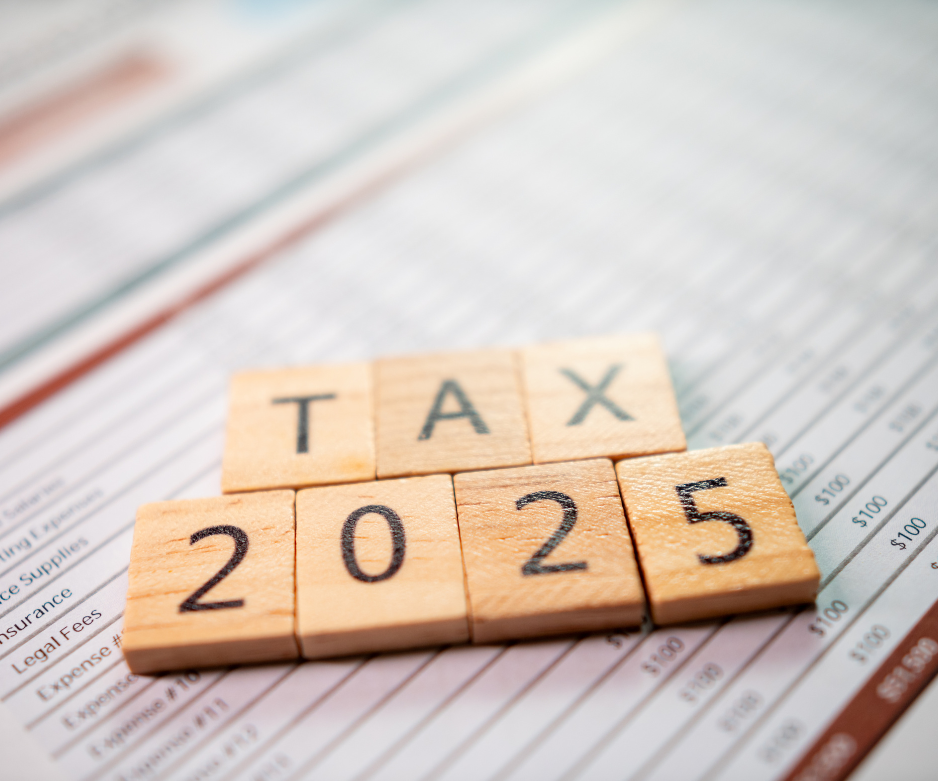Partner content
Ringing in 2025: the main tax changes in the New Year

A new year is rapidly approaching which means it’s time for businesses and freelancers to get their accounts in order.
Under Dutch law, the new year isn’t just a number but also the new tax year, and wise entrepreneurs will already be blazing a trail across their year-end accounts.
A tax expert for Blue Umbrella, which helps internationals with their business and personal tax affairs, said it’s time to take action to avoid unnecessary costs, surprises and interest payments. “The period at the end of December is the time to do a rough estimation of the profit of your company,” he says.
“Based on that, we do a provisional tax filing and preliminary assessment of the taxes you have to pay – which means that come next year, no interest will be charged. Officially, interest only starts after May 1, but businesses always struggle to finalise their accounts and by next spring, it’s a busy time for accountants. If you ask for extensions for late filing, you have more time, but you have to pay interest on the money owing at 4%. This is avoidable.”
2025 changes
As you ring in the new year, it’s a good idea to be wise to changes in the tax system for 2025. One of the most important for businesses that operate internationally across the EU is a change in value added tax, or BTW.
Previously, digital services were liable for BTW at the rate charged where your customer was based, but from 2025, this will also apply to virtual services – in other words, where you use the internet to provide a service such as a coaching session or consultation. Livestreamed events, paid webcam sessions, any artistic, sporting, cultural, scientific or educational services will all come under the new rules.
“A digital service is a newspaper or a prerecorded webinar, for instance,” says the Blue Umbrella expert. “But in a one-on-one virtual session where we have interaction, you will have to charge the BTW rate where the customer is from January 1st.”
Tax matters
The new coalition says that many groups will see a net benefit in the new tax system and while part timers and those making less than €2,000 a month will be disadvantaged, a lower starter tax rate will see many groups with a small monthly gain. The first rate of tax is still not low in international terms at 35.83%, but it is slightly less than the old 36.97% starting rate.
The middle tax level will rise to 37.48% for income between €38,441 and €75,817 and the top rate remains the same at 49.5% above this. However, since the general personal allowance is going down, people making between €1,000 and €2,000 a month will be worse off. The new tax rate has an impact on mortgage interest tax relief, which will be slightly more generous for middle and high earners.
Savings
The Netherlands distinguishes between different types of income and if you have savings and certain investments, the situation is still unclear. This money is counted in so-called Box 3 and after a series of court cases, a new system will not be in place until 2028.
Previously, the government had levied tax at a fictional rate but the Dutch Supreme Court found that this was no longer in line with actual interest rates and so was an infringements of European property rights.
“Box 3 assets will be something to watch next year,” says the Blue Umbrella expert. “It would be wise to record how much you actually make on assets such as savings because you will be able to give the actual profit for tax purposes next year.”
Landlords who are thinking of selling some of their properties – due to new rules limiting rental income – would be well-advised to think about the fact that there is currently no capital gains tax in the Netherlands. Right now, any profit they make on the sale price is completely untaxed. This will probably change by 2028.
The government is still working on a new system to make childcare virtually free, so the childcare benefits system remains the same in the meantime.
Freelancers
One important change next year involves freelancers. The government wants to crack down on “fictitious” self-employment, where a company is effectively employing another member of staff but avoiding employer costs. New rules come in next year, although fines are unlikely to be given to companies.
But if you are a freelancer, you should be aware of the changes and make sure that you have multiple clients and determine your own pay and conditions as much as possible. “If you work across a large company with structured, international subsidiaries, you should make sure you are billing the subsidiaries separately for work that you do for them individually,” said the Blue Umbrella expert.
He warned that the Dutch government needs to think about how the country operates as an attractive place to start and conduct business. “There are fewer expats coming to the Netherlands,” he said. “That’s what we are seeing. I think we are going to have a hard time economically next year.”
But by getting your own affairs in order now, you can make the best of whatever 2025 brings!
Contact Blue Umbrella for cost-efficient help with your taxes and preparing your 2025 tax return.
Thank you for donating to DutchNews.nl.
We could not provide the Dutch News service, and keep it free of charge, without the generous support of our readers. Your donations allow us to report on issues you tell us matter, and provide you with a summary of the most important Dutch news each day.
Make a donation